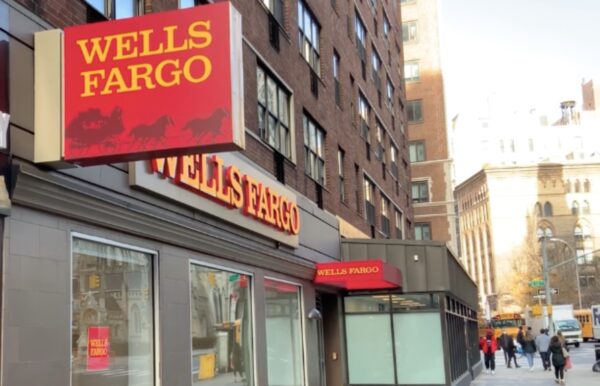Wells Fargo & Co, one of the three top banks in the United States, has been ordered to pay customers billions of dollars in fines and refunds after the government determined the financial institution violated consumer finance laws.

The penalty is the largest the bank has received in its approximately 170-year history, beating out its 2020 federal settlement to its customers.
Here’s What Happened
On Tuesday, Dec. 20, the federal Consumer Financial Protection Bureau agency ordered the bank to refund over 16 million customers’ monies the bank siphoned through mismanaged auto loans, mortgages, and deposit accounts, totaling $2 billion. The bank was also hit with $1.7 billion in penalties, according to an announcement released by CFPB.
CFPB Director Rohit Chopra said in a statement about the penalties, “between at least 2011 and 2022,” the bank nefariously deceived their customers. The agency says it worked with the broader law enforcement and regulatory community, including the Office of the Comptroller of the Currency and the Federal Reserve, to hold Wells Fargo to a level of accountability and to structure reform within the banking institution.
“Wells Fargo’s rinse-repeat cycle of violating the law has harmed millions of American families,” Chopra said. “The CFPB is ordering Wells Fargo to refund billions of dollars to consumers across the country. This is an important initial step for accountability and long-term reform of this repeat offender.”
The Findings
According to the findings, the bank also charged account holders “unlawful surprise overdraft fees and applied other incorrect charges to checking and savings accounts.”
As a result of the company’s institutional deception, victims had their vehicles repossessed and many of their borrower accounts “bungled,” to the tune of $1.3 billion and damaging over 11 million accounts.
The investigation proved Wells Fargo erroneously applied borrowers’ payments and wrongfully charged fees and interest, in an effort to repossess Americans’ cars, trucks, and other forms of personal transportation. It also didn’t make sure borrowers received refunds for certain add-on product fees if they paid up the loan early.
A part of the $2 billion refund is for improperly denying people mortgage modifications, unlawfully freezing consumer accounts, and misrepresenting fee waivers.
Also, according to the CFPB, the bank unfairly charged surprise overdraft fees to millions of people. These fees were applied “even though consumers had enough money in their account to cover the transaction at the time the bank authorized it.”
The director spoke about how the money will be broken down, saying, “Individuals affected by illegal conduct related to the bank’s auto finance business line will receive more than $1.3 billion; those affected by violations related to deposit accounts will receive more than $500 million, and mortgage servicing customers will receive at least $195 million.”
“While $3.7 billion may sound like a lot, the CFPB recognizes that this alone will not fix Wells Fargo’s fundamental problems,” which points to systemic issues inside of the company.
According to the director, the company has moved to fix its “longstanding problems,” but progress is slow.
“We are concerned that the bank’s product launches, growth initiatives, and other efforts to increase profits have delayed needed reform, ” Chopra said.
This penalization comes almost three years after the Department of Justice facilitated an agreement with Wells Fargo to pay $3 billion to resolve potential criminal and civil liabilities connected to a practice of pressuring employees to meet outlandish sales quotas between 2002 and 2016.
A 16-page document showed how over a 15-year period the company placed pressure on rank-and-file staff to expand the number of services each customer was signed up for, leading thousands of employees to create false records and misuse customers’ identities to apply products and services to millions of accounts without consent.




